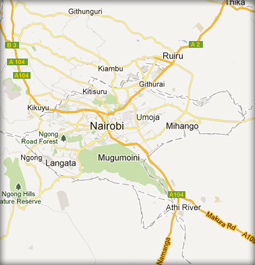Karen Blixen (1885-1962), also known by her pseudonym, Isak Dinesen, is famous for her memoir, Out of Africa, and for several works of fiction, including Seven Gothic Tales (1934) and Winter’s Tales (1942). A 2007 poll of opinion in her native Denmark lists Karen Blixen as one of the most representative personalities in Danish history. She was twice nominated for the Nobel Prize in Literature. She wrote in English, after living on a coffee farm in Kenya from 1914 to 1931.
She married her second cousin, Baron Bror Blixen of Sweden, thereby acquiring the title Baroness. Following their separation and divorce, she had a long affair with the safari hunter, Denys Finch Hatton, son of a titled English family. In 1931, after losing the coffee farm in the Great Depression, Karen Blixen returned to Denmark and embarked on the writing career that lasted until her death in 1962. She was played by Meryl Streep in the 1985 film Out of Africa.
Her memoir was arresting in many ways, especially in its oblique references to the author’s love story with the English hunter Denys Finch Hatton. It left the reader tantalized by a series of enigmas: Who was the writer’s husband, and what happened to him? Why didn’t she and Finch Hatton marry? Did she ever plan to return to Africa? What was her life now?
The answers to these questions remained private until after her death. She had married a Swede named Baron Bror von Blixen-Finecke, her second cousin, from whom she took the title Baroness. Bror was the twin of the celebrated horseman, Hans von Blixen-Finecke, the man Karen was in love with in her youth. Bror himself wrote a book describing how he and his wife had set out to run a pioneer farm in Kenya. They divorced after eleven difficult years of marriage. She fought the divorce, and her Letters from Africa suggest that she loved her husband. Bror married again twice, but Karen did not remarry and never had children.
Her talent for hospitality in Kenya attracted a variety of aristocratic and bohemian friends, including Berkeley Cole. She called Denys Finch Hatton the love of her life, but the nature of their relationship has never been clear. She appears to have suffered two miscarriages during the eight or more years of the affair. However, the writer Beryl Markham, a friend of Karen Blixen and Denys Finch Hatton, claimed to biographers that Finch Hatton was homosexual.
Due to the world wide economic depression and miscalculations in pioneer farming, Karen Blixen’s coffee farm, financed by her family, never turned a profit. She was homesick much of her time in Africa. Although she had her farm for nearly 18 years, she spent nearly four years of that time in her beloved Denmark. She left Kenya in 1931 and never returned.
Literature: Karen Blixen [Isak Dinesen] can be compared with no other writers. Her voice was formed by her Scandinavian roots, and influenced by a wide variety of works of European literature. Her writing places emphasis on story, rather than characters, and on the philosophical understanding of personal identity. Her stories underline a fascination with the role of fate in controlling the lives of human beings. She believed that a person’s response to the vicissitudes of fate offers a possibility for heroism and, ultimately, for immortality.
A small selection of her literary influences include:
- Soren Kierkegaard
- Shakespeare’s plays
- Mary Shelley
- Percy Bysshe Shelley
- Lord Byron
- Mozart’s Don Juan
- Milton’s Paradise Lost
- Charles Baudelaire
- Walt Whitman
- Goethe
For more information on our Excursion Packages and Rates




